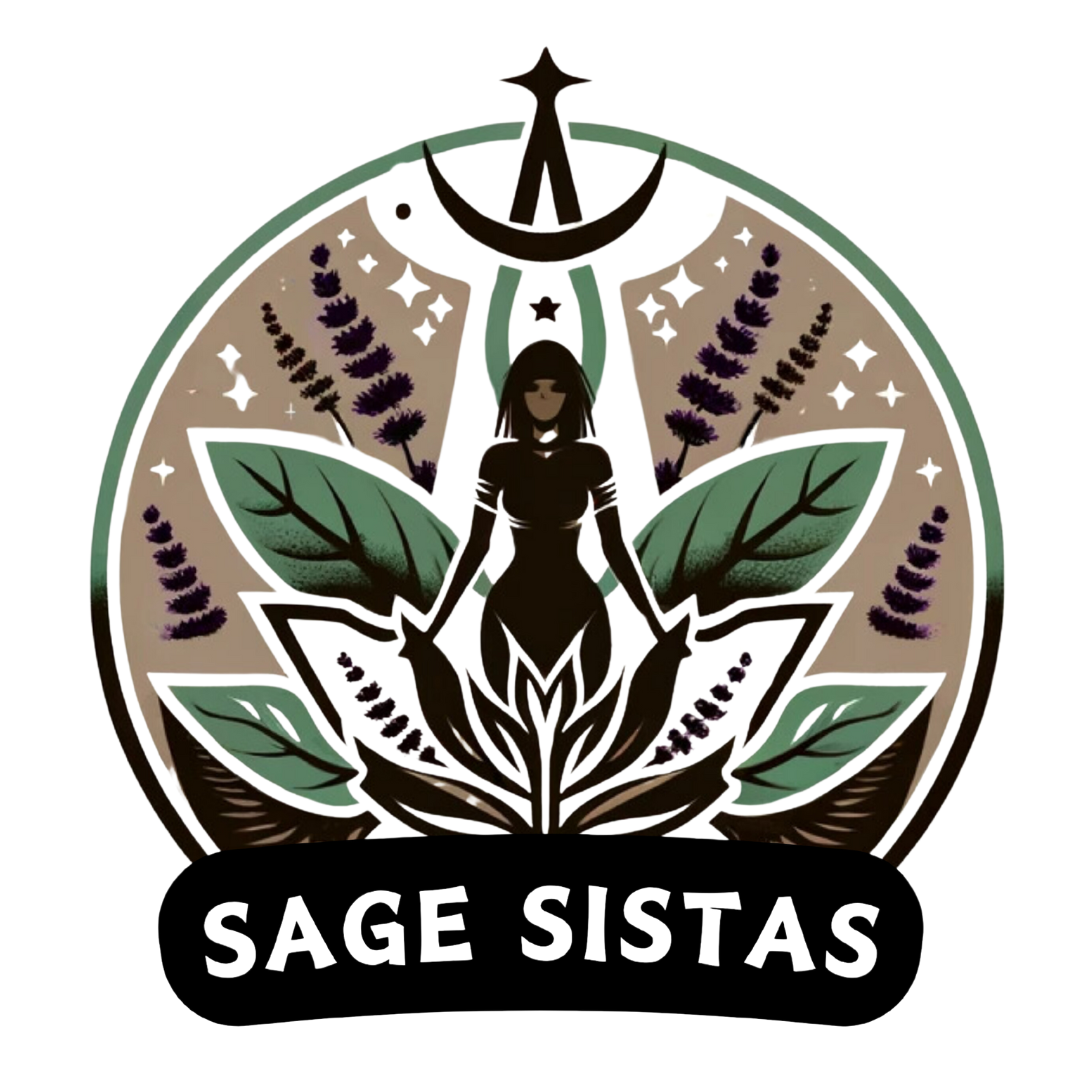Are Tarot Cards Haram? Different Islamic Views On Tarot
In this blog post, we will talk about different Islamic views on tarot cards and divination, and explore how some Muslim communities are integrating these practices into their spiritual journeys.
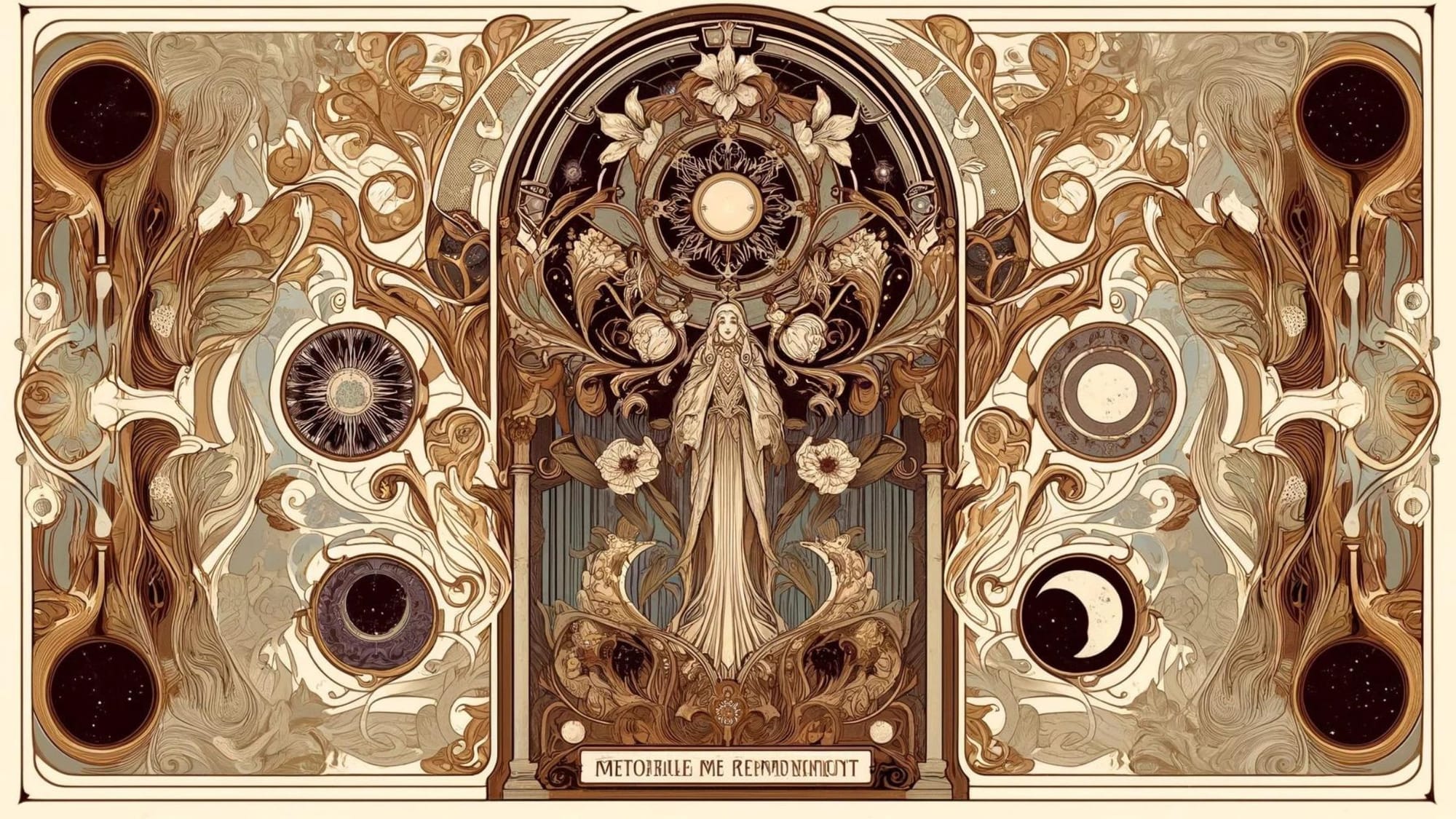
Today, tarot is widely recognized for its use in self-reflection, guidance, and spiritual insight. Recently, there has been a notable rise in the popularity of spirituality among Muslims, with many exploring alternative practices such as tarot and other forms of divination.
In this blog post, we will talk about different Islamic views on tarot cards and divination, and explore how some Muslim communities are integrating these practices into their spiritual journeys. By understanding both traditional Islamic teachings and modern interpretations, we can gain a nuanced view of the role of tarot and other kinds of divination in the lives of Muslims today.
Table of Contents
Brief History of Tarot Cards
Islamic Perspectives on Divination and Mystical Practices
Quranic Verses and Hadiths Related to Divination and Fortune-Telling
Traditional Islamic Teachings and Interpretations Regarding Divination
Different Schools of Thought Within Islam About Divination Practices
How Is Tarot Viewed in Various Muslim Communities Today?
Scholarly Views and Hadith on Self-Reflection and Introspection in Islam
Does Tarot Align with Islamic Perspectives?
Conclusion
Frequently Asked Questions
Brief History of Tarot Cards
Tarot cards are believed to have originated in the 15th century in Europe, primarily in Italy. Initially, they were used as playing cards for a game called Tarocchi.
Over time, tarot cards began to be associated with mystical and esoteric practices. By the 18th century, they were being used for divination purposes.
Traditional tarot decks consist of 78 cards divided into the Major Arcana (22 cards) and the Minor Arcana (56 cards). Each card holds symbolic imagery and meanings that are used in readings.
Although today, the tarot is widely used as a tool for self-reflection, guidance, and spiritual insight. The earliest tarot cards were used as part of a game similar to bridge. These cards were not originally intended for mystical or divinatory purposes.
The transformation of tarot into a tool for divination is credited to individuals like Antoine Court de Gébelin and Jean-Baptiste Alliette (Etteilla) in the 18th century, who linked the cards to ancient Egyptian lore and mystical traditions.
Throughout its history, tarot has influenced various cultural and spiritual movements, contributing to its widespread popularity and adaptation in different cultures.
Divination is the practice of attempting to read the ongoing communication from the divine, which is believed to manifest at every moment and through everything around us. It involves interpreting the signs and symbols provided by the divine as a means to guide, inform, and enlighten our daily lives and decisions.
Read Also:
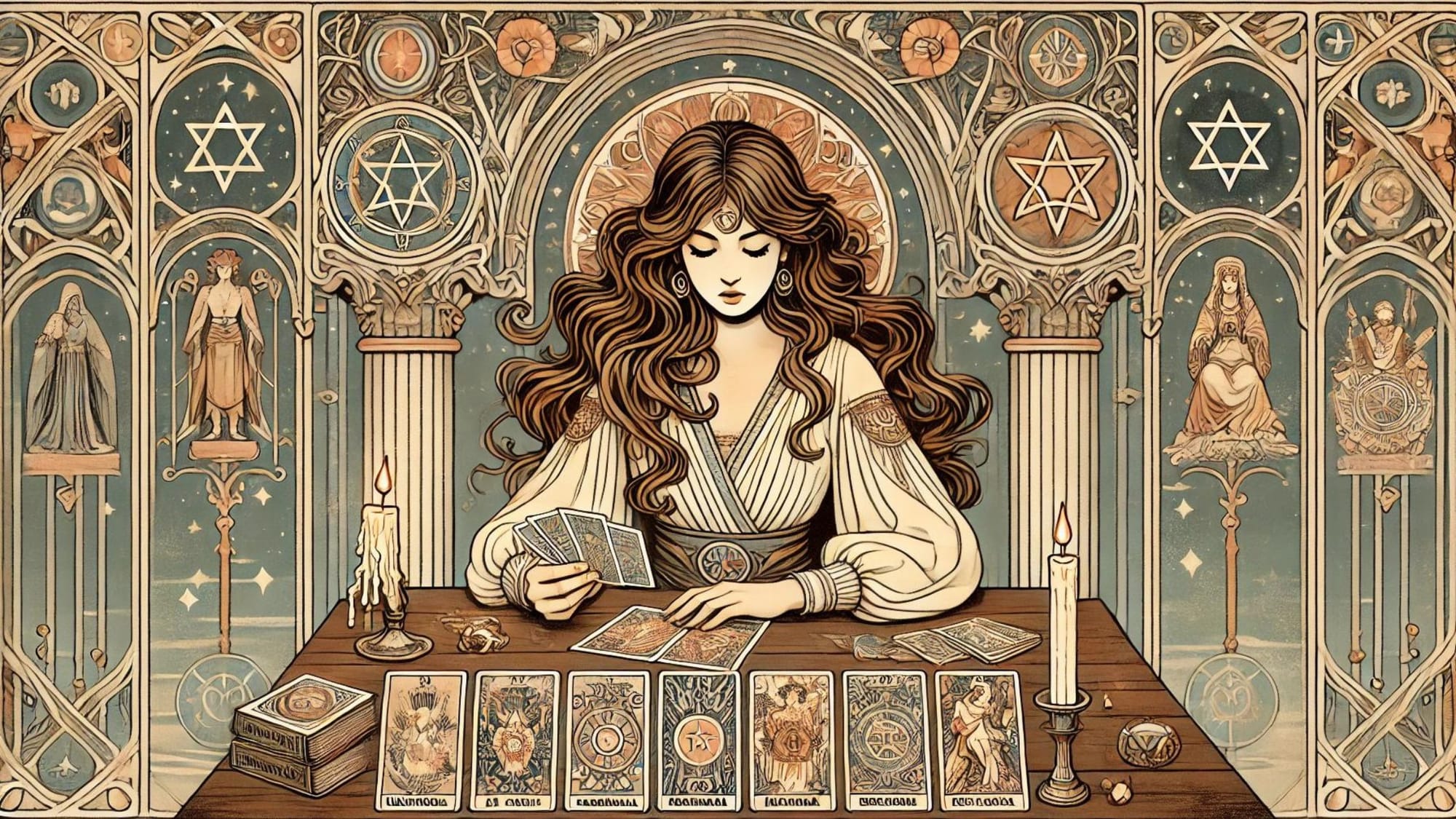
Islamic Perspectives on Divination and Mystical Practices

The Quran addresses the topic of divination and fortune-telling, generally advising against such practices. Verses such as Surah Al-Ma'idah (5:90) and Surah Al-Baqarah (2:102) highlight the prohibition of seeking knowledge of the unseen through means considered haram (forbidden).
Hadith Literature: Several Hadiths reinforce the prohibition of divination. For example, Sahih Muslim and Sahih Bukhari contain Hadiths where the Prophet Muhammad warns against engaging in or believing in fortune-telling.
Islamic Mysticism (Sufism): Despite mainstream Islamic prohibitions, Sufism—a mystical branch of Islam—has a rich tradition of esoteric practices. Sufis often seek deeper spiritual truths and may engage in practices like dream interpretation and spiritual guidance, which can be seen as parallel to certain aspects of tarot reading.
Historical Practices: Historically, some Muslim societies have had their own forms of divination and mystical practices, such as geomancy (Ilm al-Raml) and astrology (Ilm al-Nujum). These practices were sometimes accepted within specific cultural contexts but generally remained controversial within orthodox Islamic theology.
Modern Perspectives: Today, views on divination and mystical practices vary among Muslims. Some strictly adhere to traditional prohibitions, while others, influenced by personal spiritual experiences or cultural contexts, may adopt a more lenient or syncretic approach.
Quranic Verses and Hadiths Related to Divination and Fortune-Telling
Quranic Verses
Surah Al-Ma'idah (5:90): "O you who have believed, indeed, intoxicants, gambling, [sacrificing on] stone alters [to other than Allah], and divining arrows are but defilement from the work of Satan, so avoid it that you may be successful."
- This verse explicitly includes divining arrows among the practices considered sinful and to be avoided.
Surah Al-Baqarah (2:102): "And they followed [instead] what the devils had recited during the reign of Solomon. It was not Solomon who disbelieved, but the devils disbelieved, teaching people magic and that which was revealed to the two angels at Babylon, Harut and Marut. But the two angels do not teach anyone unless they say, 'We are a trial, so do not disbelieve [by practicing magic].'"
- This verse warns against practicing magic and seeking knowledge from forbidden sources.
Hadith Literature
Sahih Muslim 2230: "Whoever goes to a fortune-teller and asks him about something, his prayer will not be accepted for forty nights."
- This Hadith underscores the severity of consulting fortune-tellers.
Sahih Bukhari 5768: "The Prophet said, 'Avoid the seven destructive sins.' They asked, 'What are they, O Messenger of Allah?' He said, 'Associating others with Allah (shirk), magic, killing a soul that Allah has forbidden, consuming riba (usury), consuming the property of an orphan, fleeing from the battlefield, and slandering chaste, innocent women.'"
- Magic and practices associated with seeking forbidden knowledge are listed among major sins.
Traditional Islamic Teachings and Interpretations Regarding Divination
Prohibition of Divination: Traditional Islamic teachings generally prohibit all forms of divination and fortune-telling. These practices are seen as attempts to seek knowledge of the unseen, which is reserved for Allah alone. Engaging in such practices is considered a form of shirk (associating partners with Allah), which is one of the gravest sins in Islam.
Seeking Guidance: Muslims are encouraged to seek guidance through permissible means such as prayer (Salah), supplication (Dua), and consulting the Quran. The practice of Istikhara, a specific prayer for seeking Allah's guidance in decision-making, is highly recommended.
Mystical Practices in Islam: While mainstream Islamic teachings discourage divination, certain mystical practices within Islam, particularly Sufism, explore esoteric and spiritual knowledge. Sufis focus on personal spiritual development and may engage in practices that aim to deepen their connection with the divine, though they avoid practices explicitly forbidden in Islam.
Different Schools of Thought Within Islam About Divination Practices

Sunni Islam: All four major Sunni schools of thought uniformly prohibit divination and fortune-telling. These schools emphasize strict adherence to the Quran and Hadith, condemning any practices that seek knowledge of the unseen outside of Islamic teachings.
Shia Islam: Shia scholars also generally prohibit divination and fortune-telling, adhering to similar principles as Sunni scholars. However, there may be a greater emphasis on the role of Imams and their spiritual insights, which some believers may turn to for guidance.
Sufism: Sufi traditions often focus on personal spiritual experiences and direct communion with the divine. While they avoid practices explicitly prohibited in Islam, some Sufi orders may incorporate elements of mysticism and esoteric knowledge that might appear similar to divination. However, these practices are framed within the context of deepening one's spiritual journey and should not be confused with fortune-telling.
Modern Perspectives: Contemporary Muslim scholars and communities continue to uphold the traditional prohibitions against divination. However, there is a growing interest in spirituality and alternative practices among some Muslims, leading to a range of opinions on how to balance traditional teachings with personal spiritual exploration.
Read Also:
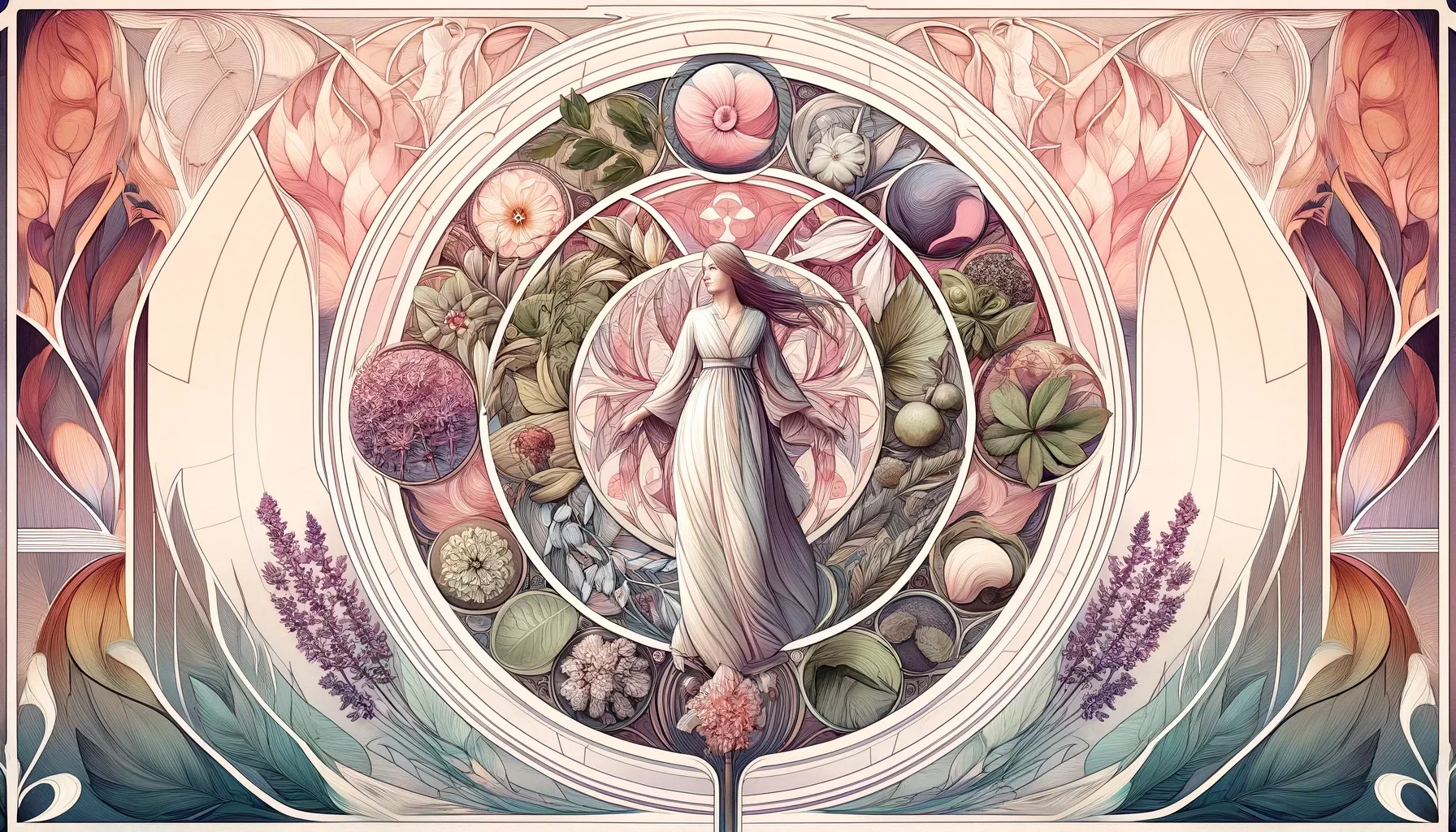

How Is Tarot Viewed in Various Muslim Communities Today?
Traditional Views: In many traditional Muslim communities, tarot cards and similar forms of divination are viewed negatively. They are often associated with shirk (associating partners with Allah) and considered haram (forbidden). The reliance on anything other than Allah for knowledge of the unseen is seen as problematic.
Progressive and Liberal Views: In some progressive or liberal Muslim communities, there is a more open attitude towards tarot and other alternative spiritual practices. These individuals might see tarot as a tool for introspection and personal development rather than divination. They often use it in a way that complements their faith and spiritual practices without contradicting core Islamic beliefs.
Cultural Syncretism: In certain regions, there is a blending of cultural practices with Islamic beliefs. In these areas, tarot or similar practices might be adapted in a way that aligns with local customs and spiritual understandings. This syncretism can create a more nuanced acceptance of such practices.
Scholarly Views and Hadith on Self-Reflection and Introspection in Islam:
Quranic Guidance on Self-Reflection:
- The Quran encourages self-reflection and seeking knowledge about oneself and one's actions. For instance, Surah Al-Hashr (59:18) states, "O you who have believed, fear Allah. And let every soul look to what it has put forth for tomorrow—and fear Allah. Indeed, Allah is Acquainted with what you do."
- This verse emphasizes the importance of introspection and being mindful of one's actions and their future consequences.
Hadith on Self-Knowledge:
- The Prophet Muhammad (peace be upon him) said, "He who knows himself knows his Lord" (Hadith, attributed to Ali ibn Abi Talib). This Hadith underscores the value of self-knowledge and introspection in understanding one's relationship with God.
Views of Islamic Scholars:
- Imam Al-Ghazali, a prominent Islamic scholar, emphasized the importance of self-awareness and inner purification. In his work "Ihya' Ulum al-Din" (The Revival of Religious Sciences), he discusses the significance of examining one's inner self and purifying the heart from negative traits.
- According to Al-Ghazali, self-reflection and understanding one's inner thoughts and motivations are crucial for spiritual growth and aligning oneself with Islamic principles.
Does Tarot Align with Islamic Perspectives?
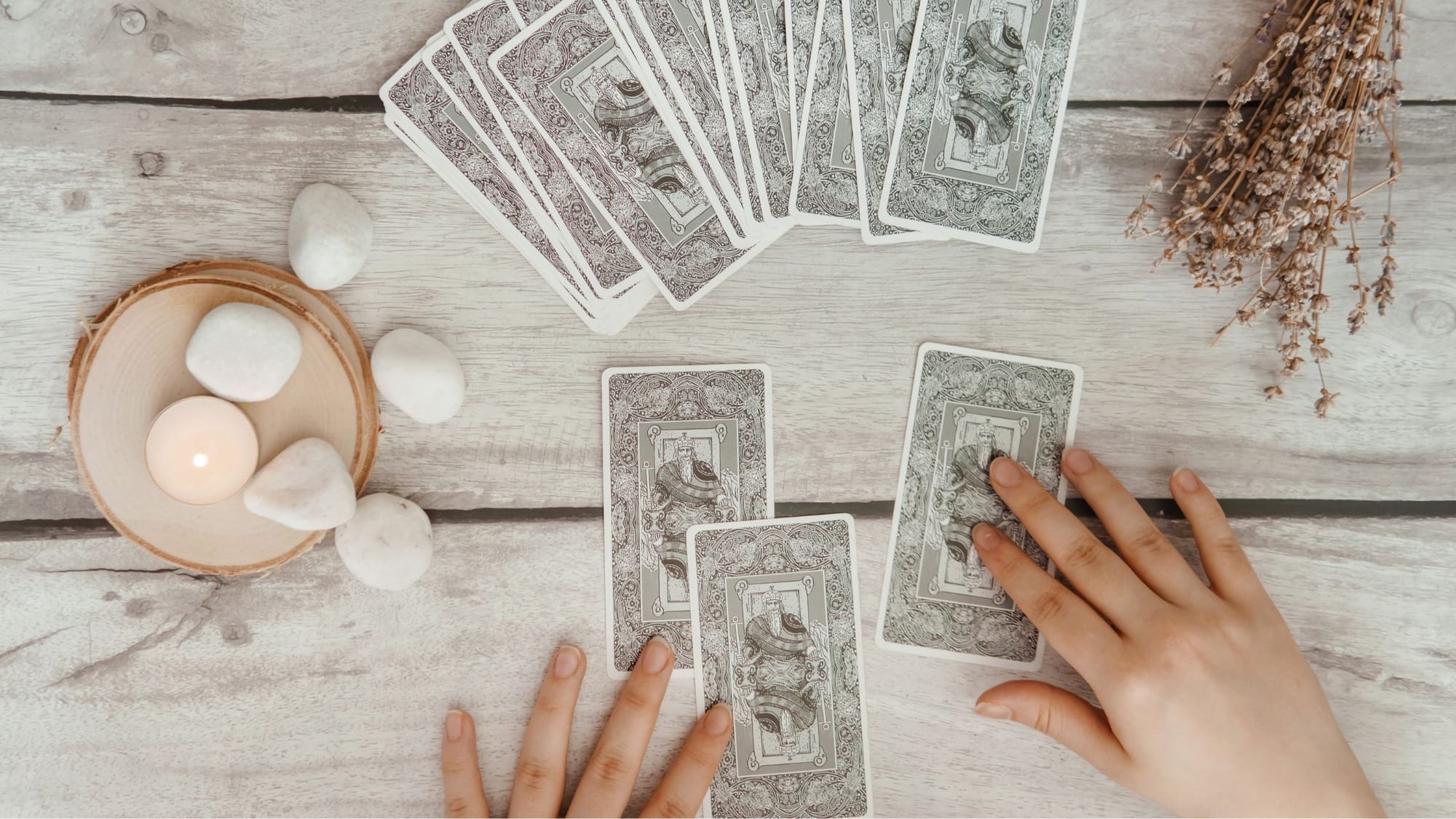
According to spiritual Muslims, tarot cards are natural tools for self-awareness and introspection. They help us explore our subconscious minds, providing clarity and guidance based on our internal landscape rather than any external mystical energy.
This perspective demystifies tarot and explains its role in psychological and emotional exploration. Tarot cards function like a mirror, revealing insights and emotions that are already within us, rather than sourcing their power or messages from external, mystical forces.
Inner Guidance: When using tarot cards for self-reflection, one could argue that they serve as tools to unlock subconscious thoughts and feelings, similar to the Islamic emphasis on self-awareness. This process can be seen as a way to better understand oneself and make more informed, conscious decisions.
Absence of Intrinsic Evil: Islamic teachings suggest that objects are neutral and their use depends on the intention behind them. The Prophet Muhammad (peace be upon him) emphasized the importance of intention in the Hadith, "Actions are judged by intentions, and everyone will be recompensed according to what he intended" (Sahih Bukhari & Sahih Muslim). This can be interpreted to mean that tarot cards, in themselves, are not evil; their impact depends on how they are used.
Human Agency: Islam acknowledges human free will and the ability to make choices. While the future is ultimately known only to Allah, humans can reflect on their current circumstances and make educated guesses about potential outcomes. This aligns with the idea that tarot readings provide insights based on current situations rather than definitive predictions.
Internal Reflection: The use of tarot as a tool for internal reflection can be seen as a way to engage in the type of self-examination encouraged in Islamic teachings. By viewing the cards as a means to access one's subconscious, the practice can be aligned with the broader goal of self-awareness and personal growth.
Read Also:


Conclusion
In summary, there are two approaches to using tarot cards: as tools for self-reflection and accessing the subconscious, or as future-telling and prohibited divination practices in Islam. The first view aligns with Islamic teachings on self-awareness and introspection, suggesting that the cards themselves are neutral and their impact depends on the user's intentions. On the other hand, traditional Islamic teachings caution against any form of divination, emphasizing that only Allah knows the future.
So, Muslims need to ensure their practices do not contradict the Quran. While using tarot for self-reflection can be beneficial, it is crucial to stay within the boundaries set by Islamic principles. Therefore, careful consideration and adherence to religious guidelines are paramount in this case.
Frequently Asked Questions
1. Does Islam allow to take tarot card reading?
No, Islam generally prohibits tarot card reading. The Quran and Hadith both discourage divination practices, as seeking knowledge of the unseen is reserved for Allah alone. Verses such as Surah Al-Ma'idah (5:90) and Hadiths in Sahih Muslim and Sahih Bukhari explicitly advise against such practices.
2. Is tarot reading considered haram if not taken seriously?
Yes, tarot reading is considered haram in Islam even if not taken seriously. Engaging in divination practices is prohibited regardless of the intention behind them, as they can lead to superstitious beliefs and reliance on impermissible sources of guidance.
3. Are Tarot cards mysticism?
Yes, tarot cards are associated with mysticism. They are used in various mystical traditions to gain spiritual insight and explore hidden knowledge. In the Islamic context, such practices are discouraged as they conflict with the belief that only Allah possesses knowledge of the unseen.
